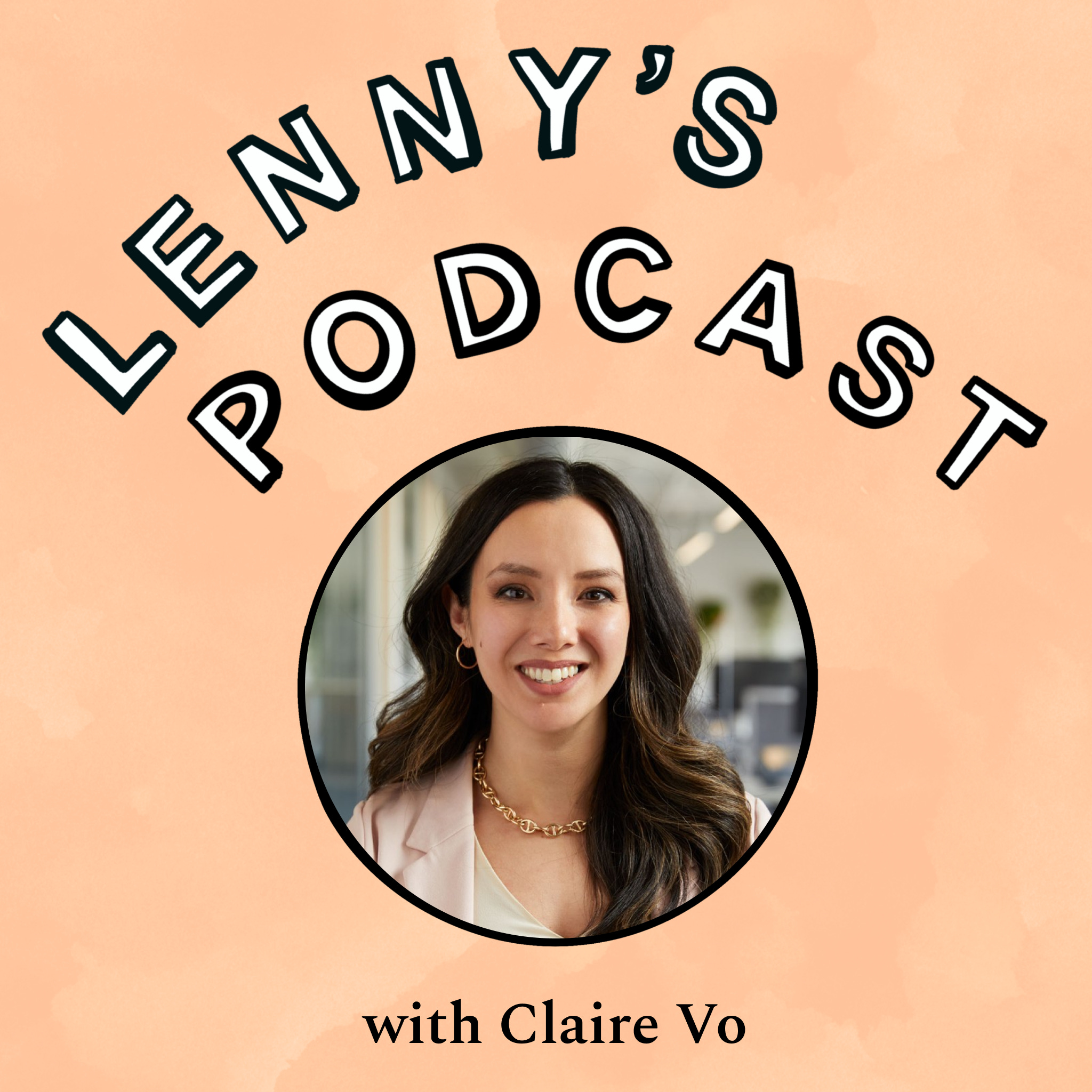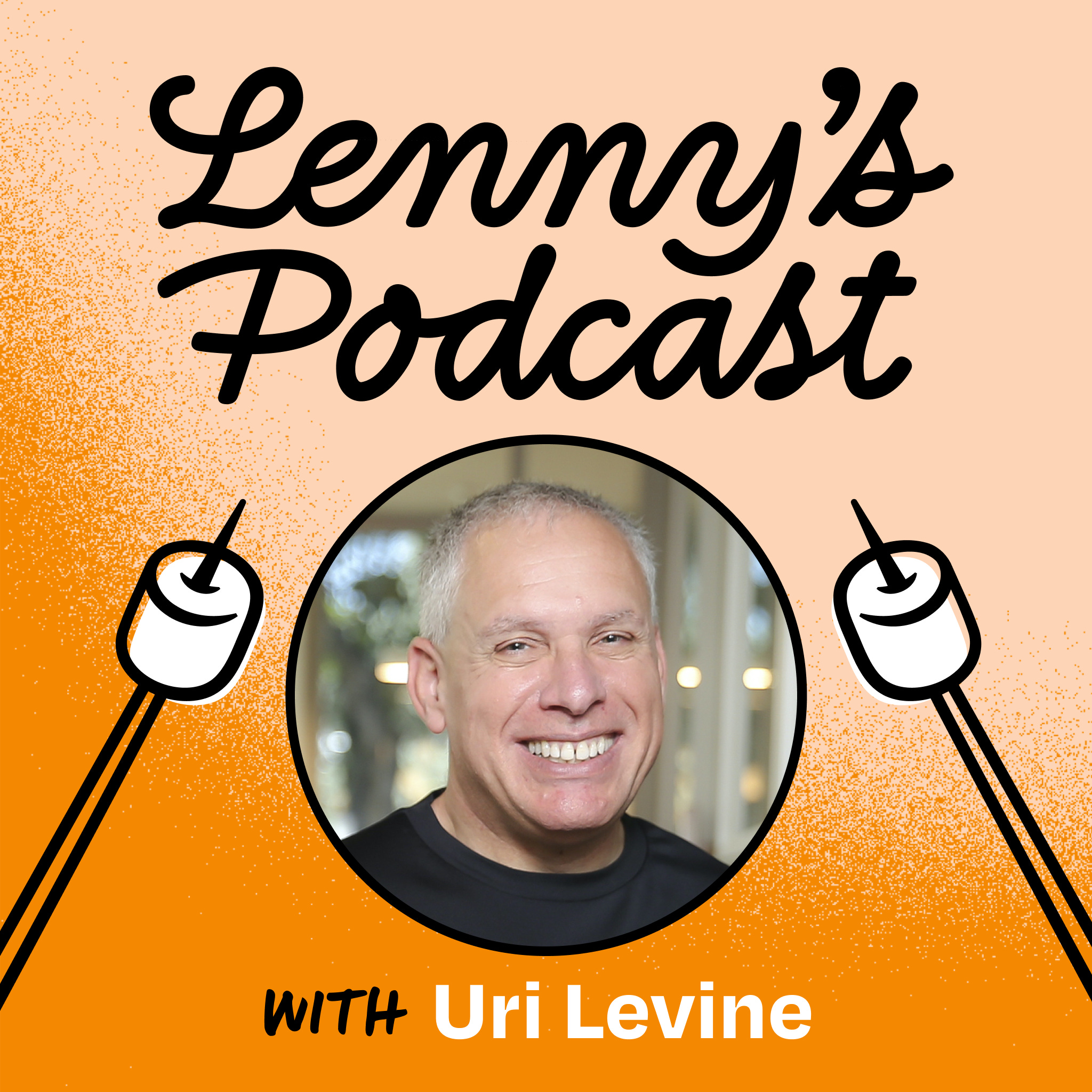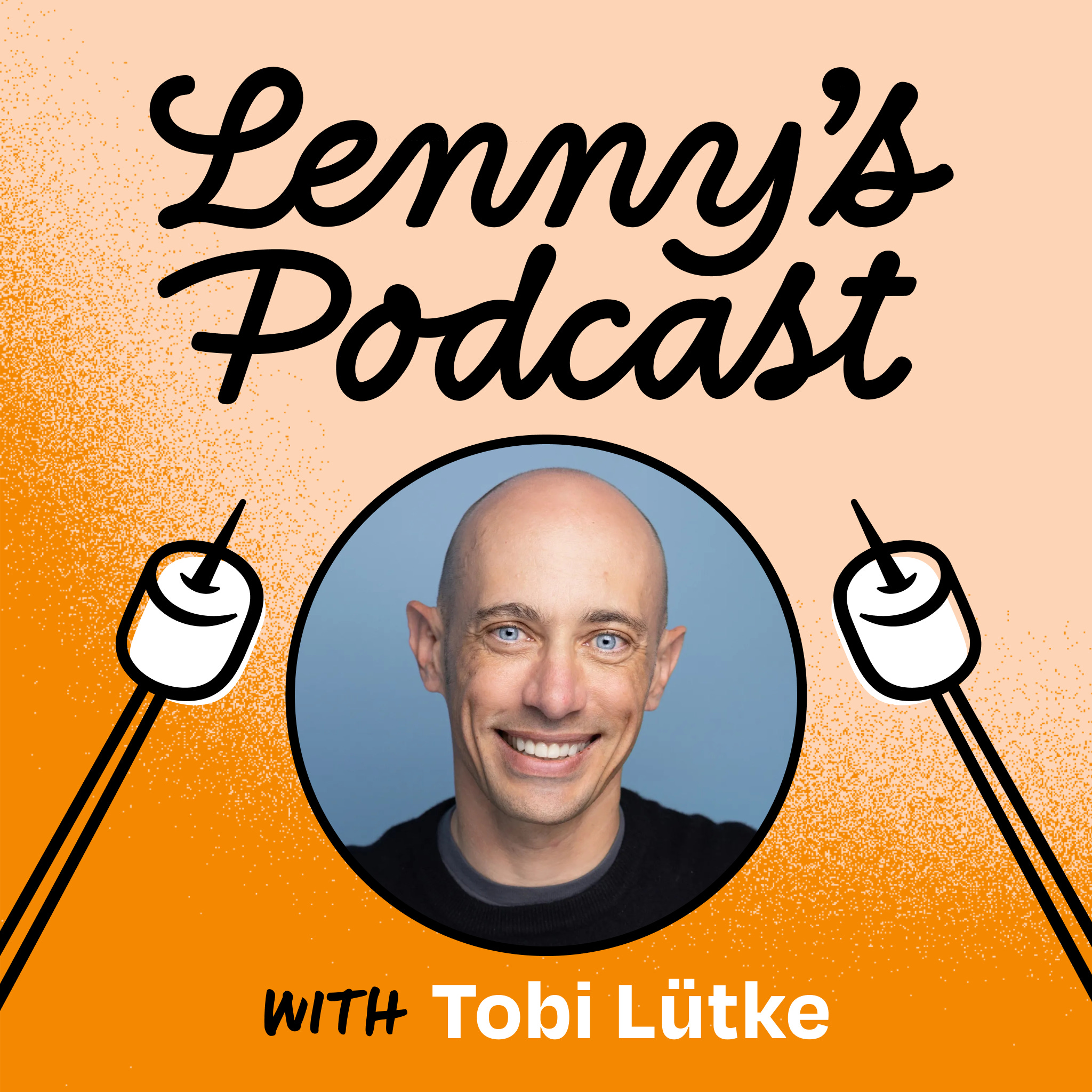
April 7, 2024 • 1hr 27min
Bending the universe in your favor | Claire Vo (LaunchDarkly, Color, Optimizely, ChatPRD)
Lenny's Podcast: Product | Growth | Career

Key Takeaways
- Career progression advice: Know what you want out of your career, be clear about it, and ask for it. Make it easy for your boss to help you achieve your goals.
- Finding your zone of genius: Focus on tasks where you are exceptional and derive joy. This leads to sustainable career growth.
- Maintaining pace in larger companies: Set expectations for a "one click faster" pace than normal. Don't let recurring meetings dictate your speed.
- Being a woman in tech: It's still challenging, even at senior levels. Focus on curiosity about structural/cultural issues and stay empowered.
- The CPTO role: Combines product and engineering leadership. Requires technical skills and operational experience to be effective.
- Impact of AI on product management: Will likely change required skills and team ratios. PMs should experiment with AI tools to stay ahead.
- Building AI tools like ChatPRD: Focus on prompt engineering and instructions. Consider monetization challenges when building public tools.
- Contrarian view: Sales-led product organizations can build great products and businesses, contrary to some product dogma.
Introduction
In this episode, Lenny interviews Claire Vo, an experienced product leader who is currently the Chief Product Officer at LaunchDarkly. Claire has a diverse background as a two-time founder, engineer, designer, and marketer. She's also the creator of ChatPRD, a popular AI tool for product managers.
The conversation covers a wide range of topics including career advice for product managers, the challenges of being a woman in tech, the emerging role of Chief Product and Technology Officers (CPTO), and the impact of AI on product management. Claire also shares insights on building AI tools and offers a contrarian perspective on sales-led product organizations.
Topics Discussed
Career Progression and Advice (4:51)
Claire shares her approach to career growth, emphasizing the importance of knowing what you want and clearly communicating it:
- Be clear about your goals: Know exactly what you want your next role to be and communicate it to your boss.
- Make it easy for others to help you: Present solutions that benefit both you and the company.
- Balance ambition with results: "Know what you want, but do the work and produce the results," says Claire.
Claire advises against obsessing over promotions, suggesting instead to focus on solving problems for the company:
- Understand the talent norms and promotion cycles in your organization
- Frame promotion discussions around how a new role benefits the company, not just your personal career growth
- Consider expanding your skills horizontally (e.g., into marketing or operations) to create new growth opportunities
Finding Your Zone of Genius (17:24)
Claire emphasizes the importance of operating in your "zone of genius" - areas where you excel and find joy:
- Identify tasks where you are exceptional and derive emotional and intellectual satisfaction
- Focus on what you do that no one else in the organization can do as well
- Use techniques like calendar audits to categorize activities based on enjoyment and impact
For Claire, her zone of genius includes:
- Traversing across functions (product, engineering, design, data, operations)
- Moving between high-level strategy and detailed execution
Maintaining Pace in Larger Companies (23:03)
Claire shares strategies for maintaining a fast pace within larger organizations:
- Set "one click faster" expectations: Consistently push for shorter timelines than initially proposed
- Don't let recurring meetings dictate pace: Make decisions and take action between scheduled meetings
- Personal SLAs: Respond quickly to avoid being a bottleneck for the organization
"I communicate to my leaders that my expectation is they bring in the clock speed one click faster," Claire explains.
Setting a High Bar for Quality and Talent (27:46)
Claire discusses maintaining high standards for both talent and product quality:
- Define specific, measurable criteria for career progression, especially at senior levels
- Normalize feedback and create a culture of candid communication
- Be willing to make tough decisions about team fit to maintain overall performance
Being a Woman in Tech (33:09)
Claire shares her perspective on the challenges women face in the tech industry:
- Acknowledge that progress has been made, but significant challenges remain
- Stay curious about structural and cultural issues that create barriers
- Maintain an empowered mindset and focus on areas where you can drive change
"This is not about imposter syndrome... It is hard and it is different and the numbers pencil out in a way that is not favorable to women," Claire notes.
The Role of a CPTO (47:09)
Claire explains the emerging role of Chief Product and Technology Officer (CPTO):
- Combines leadership of product, engineering, and often design functions
- Requires strong technical skills and understanding of software development
- Focuses on optimizing for the whole organization rather than individual functions
- Provides CEO-level accountability for R&D investments
"There should be no debates over what's best for product or what's best for engineering. What's best for design should be what is best for the organization," Claire emphasizes.
Building ChatPRD (54:19)
Claire discusses her experience building ChatPRD, an AI tool for product managers:
- Started as a personal tool to increase efficiency in writing product requirements
- Evolved from a ChatGPT prompt to a custom GPT to a standalone application
- Main use cases include generating PRDs, improving existing documents, and brainstorming
Claire shares that ChatPRD users report significant time savings and increased efficiency in their product management work.
Tips for Building a GPT (59:39)
Claire offers advice for those looking to build their own AI tools:
- Focus on prompt engineering: The quality of instructions and context significantly impacts output
- Consider monetization challenges: Current platforms lack built-in monetization options
- Experiment with different models: Look beyond just OpenAI for potential improvements
The Impact of AI on Product Management (1:02:27)
Claire discusses how AI might change the product management role:
- Expect shifts in team ratios and required skills
- Lower-level communication tasks may be replaced by AI
- Human skills like influence, convincing others, and bold vision will remain crucial
- PMs should focus on building the right things quickly and delivering value, regardless of the tools used
"I think there's a lot of change coming and I want to be prepared for it," Claire states.
Contrarian Corner: Sales-led Product Organizations (1:16:39)
Claire offers a contrarian view on sales-led product organizations:
- Sales-led companies can build great products and successful businesses
- Being commercially oriented doesn't mean sacrificing craft or user experience
- Product teams shouldn't dismiss the value of sales-driven approaches
"I think that it is okay to listen to the market and to be commercially oriented in products in ways that probably would make some folks in some types of product organizations squirm a little bit," Claire argues.
Conclusion
The conversation with Claire Vo provides valuable insights for product managers at all career stages. Her advice on career progression, finding your zone of genius, and maintaining a fast pace in larger organizations offers practical strategies for professional growth. Claire's perspective on being a woman in tech highlights ongoing challenges while emphasizing the importance of staying empowered and driving change.
The discussion of AI's impact on product management underscores the need for PMs to stay ahead of technological shifts by experimenting with new tools and focusing on high-value skills. Claire's experience building ChatPRD offers a glimpse into the potential for AI to enhance PM productivity while also highlighting the challenges of creating and monetizing such tools.
Finally, Claire's contrarian view on sales-led product organizations challenges common industry assumptions and encourages PMs to consider diverse approaches to building successful products and businesses. Overall, the episode provides a wealth of actionable advice and thought-provoking perspectives for anyone working in or aspiring to product management roles.









